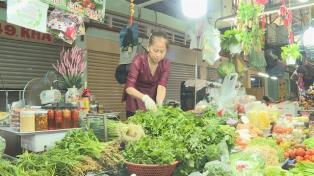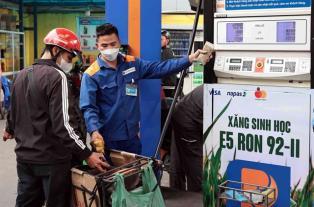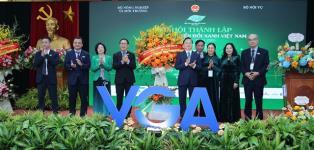Việt Nam has solidified its position as one of Southeast Asia’s fastest-growing economies after eight decades of national development, according Emeritus Professor Carl Thayer from the University of New South Wales (Australia).

SYDNEY — Việt Nam has solidified its position as one of Southeast Asia’s fastest-growing economies after eight decades of national development, according to Emeritus Professor Carl Thayer from the University of New South Wales (Australia).
In a recent interview with the Vietnam News Agency's resident reporters in Sydney on the threshold of the 80th National Day (September 2), Thayer, a renowned Việt Nam specialist, highlighted the country’s robust economic growth since “Đổi Mới” (renewal).
Although the COVID-19 pandemic posed formidable challenges, the economy rebounded quickly, posting GDP growth of 5.3 per cent in 2023 before accelerating to nearly 7.1 per cent in 2024. This year, the Vietnamese Government eyes 8 per cent in economic expansion, with expectations to move towards double-digit growth in subsequent years.
The professor said Việt Nam could deliver on its goals if it pays greater attention to leveraging foreign investment and export activities – two of the economy’s key growth drivers.
The country has achieved remarkable success in shifting to an export-oriented economy, with strong performance witnessed in textiles and mobile phones. However, as other nations pursue similar strategies, Việt Nam has taken further steps to strengthen its competitiveness, including advancing value chain, promoting technological renewal, and cooperating with foreign firms in human resources training.
As avoiding the middle-income trap remains a strategic priority, Việt Nam is focusing on improving competitiveness, diversifying its economy, developing high-quality human resources, fostering innovation, and protecting the environment. The ultimate goal is to move from a low-cost and labour-driven economy towards higher value-added industries and modern technologies. The professor observed that Việt Nam has been well-prepared for this transition.
Regarding the adoption of the two-tier local government model since July 1, Thayer described this as a historic strategic move, helping the country capitalise on its resources in a more effective and faster manner to concretise its set targets.
As an active and responsible member of ASEAN, Việt Nam, with its increasingly abundant resources, also has the potential to accelerate growth across the bloc and confidently assumes ASEAN leadership roles, Thayer added.
Looking ahead, Thayer advised that while Việt Nam has witnessed rosy economic growth, the country should remain vigilant against global economic and trade uncertainties, given its deep integration with the global economy.
Over the past 80 years, Việt Nam has undertaken extensive economic reforms, including domestic market improvements, enhanced savings rates, consumption promotion, and export market expansion. However, long-term success requires further market diversification, coupled with flexibility in response to unexpected and rapid global policy shifts, he added. — VNS





